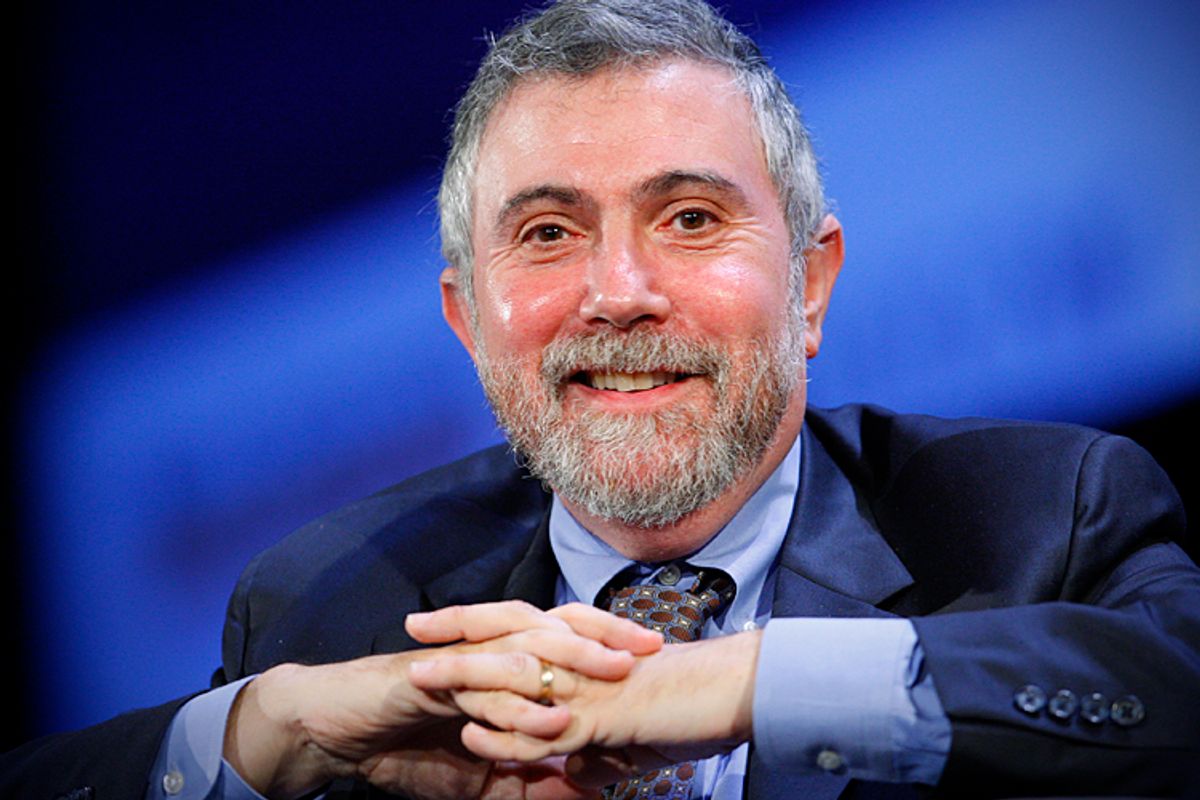In his most recent column for the New York Times, award-winning economist and best-selling author Paul Krugman argues that the ongoing slowdown in national healthcare costs, which has been especially pronounced among users of Medicare, is going underreported on by the mainstream media, despite the fact that it's a "really big deal" that could "transform a lot of our political debate."
"We’ve all seen projections of giant federal deficits over the next few decades, and there’s a whole industry devoted to issuing dire warnings about the budget and demanding cuts in Socialsecuritymedicareandmedicaid," Krugman writes. "Policy wonks have long known, however, that there’s no such program, and that health care, rather than retirement, was driving those scary projections." It's the expected future costs of a baby boom-servicing Medicare, Krugman explains, that are truly driving the pro-austerity movement.
"But a funny thing has happened," Krugman notes. "Health spending has slowed sharply, and it’s already well below projections made just a few years ago. The falloff has been especially pronounced in Medicare, which is spending $1,000 less per beneficiary than the Congressional Budget Office projected just four years ago." And with that change, Krugman argues, may come some major political consequences — the end of deficit hysteria and the vindication of a key component of Obamacare chief among them.
Krugman ends the column on a positive note, celebrating not only the latest projections for their impact on the austerity debate, but citing the slowdown as a victory for a reformist, non-revolutionary, approach to progressive politics in general :
What’s the moral here? For years, pundits and politicians have insisted that guaranteed health care is an impossible dream, even though every other advanced country has it. Covering the uninsured was supposed to be unaffordable; Medicare as we know it was supposed to be unsustainable. But it turns out that incremental steps to improve incentives and reduce costs can achieve a lot, and covering the uninsured isn’t hard at all.
When it comes to ensuring that Americans have access to health care, the message of the data is simple: Yes, we can.



Shares